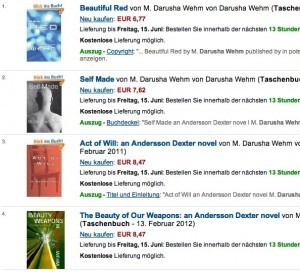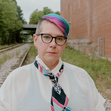M. Darusha Wehm's Blog, page 17
August 22, 2012
What Does It Mean To Be An Author
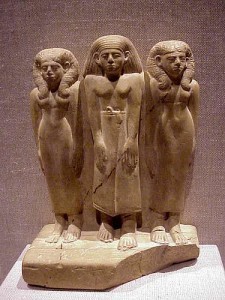
Photo by: mharrsch via photo pin
I came across a list by Terence Blacker, designed to elicit whether you are really, truly an author? There’s a lot of gold in that list, and I agreed with many of the items (disagreed with a few, too).
It got me thinking about the three aspects of being a fiction creator which I’ve been meaning to talk about anyway. I think the triad is, in alphabetical order:
Author
Storyteller
Writer
I think they are three very different aspects to the craft and require different skills and talents. This post will focus on the first: authorship.
Blacker has some poignant thoughts about authorship, which I’m defining as the professional content creator. His list covers specifically writers, but I’d argue that authorship applies to scriptwriters, playwrights, game designers, et. al.
Blacker’s quiz, in a Jeff Foxworthy “You might be an author if…” style, includes the following ideas which resonated strongly with me:
You write a book, and when it’s gone, it’s gone. It turned out not to be the perfect work you once envisaged but, for better or worse, it has reached its destination. If you are lucky enough to be asked to talk about it months later when it is published, you will see it from the outside, almost as if it has been written by a stranger. Your mind is on what you are writing now.
You find yourself, rather shamingly being rather sparing when you write letters. You are not being paid. It is not part of your work. Words are your capital.
You feel guilty when you are not working. Even on Christmas Day, there is a niggling sense within you that you have something more important to do than drink, laugh and have fun.
You are aware that bitterness is the professional and personal enemy of every long-term writer. You have seen it erode the lives of fellow-authors, who brood over past slights and setbacks, and rage at the success of their contemporaries. You have made a mental note not to fall into the same trap.
These concepts tap into the professionalism of authorship, the feeling that the writing is not only fun, compelling or personal, but is in a real sense work. Work the author loves, ideally, but work nonetheless.
The comments to Blacker’s post include a link to more thoughts on being an author by Katie Ward, who points out that “authorliness” also includes the marketing and other adminstrative aspects of being a professional.
The author has an author website to maintain, tweets author tweets, has an author Facebook page, and an author photograph. The author gives author talks, does author interviews, keeps author accounts, files an author tax return, and answers author email.
It seems to me that a lot of the drama that surrounds some of the conversations among fiction writers boils down to a conflation of these three aspects of what we do. A lot of the backlash against the marketing parts of the work comes, I think, from people who aren’t accepting the “author” part of their career.
However, the synthesis of these three parts are what allow someone to have a successful career as a fiction creator.
It’s perfectly fine to write and not to be an author, just as it’s perfectly fine to be a storyteller who doesn’t write. For those of us who do want to synthesize all these parts, I think it’s useful to break down what each aspect does. Particularly since the skills are different and none of us are likely to be equally adept at all parts, it’s good to be able to identify those areas we can work on and focus on increasing those skills.
Call it professional development.
August 19, 2012
A Glimpse of the Sausage Factory

Photo by Dan Patterson
Editing is among the most important part of serious writing. For new writers, or non-writers interested in the process, this article at Pankhearst is a good primer on the nuts and bolts of editing one’s own fiction.
My original description of the character Matt Adams read:
Matthew Adams was waiting inside the Benz. More bulky and even better tailored than his colleagues, Matt was head of security for Emily’s family’s firm.
I changed this to avoid my previous deliberate repetition of bulky and also to introduce Emily’s father and the fact that something has happened to him.
Matthew Adams was waiting inside the Benz. Bigger than his colleagues and even more exquisitely tailored, he had been her father’s chief of security.
August 13, 2012
I don’t like [insert genre here].

Photo by the crew of Nyon
My friend Kyra, who is also a long distance sailor living on her boat, wrote a great article about trying new things (like reading science fiction).
There is something to be said about being open. It took me nearly 40 years to come out of the science-fiction closet. I could have remained attached to the idea that I just didn’t like it. After all, it’s a long time to be convinced I had no interest in fantastical tales from outer space, comprising time travel and future worlds…
S.V. Nyon: set phasers to stun
As someone who is quick to dismiss anything labelled fantasy, this was a good reminder to me that it’s not the genre but the quality of the story that’s important.
June 28, 2012
“But, are you making a living?”
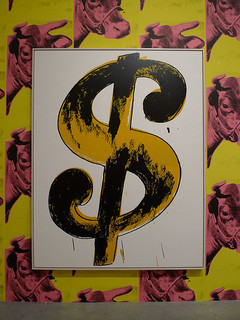 When people find out that someone is an author, there are several questions that usually come up pretty fast:
When people find out that someone is an author, there are several questions that usually come up pretty fast:
Would I have read anything you wrote?
Where do you get your ideas from?
Are you making any money?
I’m going to talk about the last of these for now, and particularly its rather bothersome follow-up question, which inspired the title of this post.
“Are you making any money?” is such an interesting thing to ask an author. The obvious implication is that the asker assumes that you are not. Also, that making money is the sole indicator of quality or success. Or that you wouldn’t (or shouldn’t) be writing if it weren’t for the money.
I’m a commercial author; I sell my books and stories. I don’t believe this makes me a better author than writers who share their work for free or perhaps never even show it to anyone. But I choose to make my work available for sale – my time is worth something, and I believe that people will pay for stories that they like. And the market agrees, for whatever that’s worth.
But I do not write in order to make money. Very few fiction authors do – it’s not typically a lucrative profession. Like all artists, writers struggle to sell their work. A handful of well-known and popular people do extremely well financially, but the majority plod away with a small fan base and a steady trickle of sales.
But I am making money with my writing, so that should satisfy those folks who want to use sales as a gauge of success, right? Apparently not, since in my experience, when I answer the question, “Are you making any money?” with the word, “Yes,” the person who asks almost inevitably follows it up with an incredulous, “Yeah, but, are you making a living?”
It’s hard not to get angry when this happens.
I know these people aren’t trying to be insulting, but the implication is that if an author doesn’t clear tens of thousands of dollars a year, that maybe they should just stop writing. I mean, why do something that’s difficult and time-consuming if it doesn’t pay the bills? Clearly, I’d just be better off spending that time watching TV or playing golf.
What folks don’t realize is that few authors “make a living” as a writer. When you go into a bookstore, the vast majority of the people behind those books have day jobs, many of which have nothing to do with their writing.
The publishing business is notoriously difficult to quantify, but with a little digging you learn that the average advance for a first time novelist is about $5000. Most books don’t earn out their advance, so that’s all the money the author will see from that book sale. And it’s not like most writers can crank out a completed novel in a few months. Many writers infamously take years on a book.
Most authors would love to work on their craft full-time, as would most visual artists, musicians, filmmakers and craftspeople. But the reality of the current economic system is that creative work is valued in a highly polarized manner – a tiny number of popular artists make huge sums for their work and everyone else barely gets by. It’s the nature of the beast.
Yet some people seem to think that it’s acceptable to imply that those of us whose books aren’t instantly as popular as Twilight or The DaVinci Code should just give up on our art. As if sales have ever been the best indicator of artistic value. As if creative people have never been motivated by something other than cash.
I know that the people who ask if I make a living from my writing aren’t trying to be hurtful. The question may arise out of their belief that artists should be paid. Perhaps they’re just curious, or maybe even a little envious.
But regardless of why they ask, the implications remain, and it’s difficult not to take insult from that question.
June 24, 2012
Experience-Taking Through Fiction (or how to get readers to love your characters)
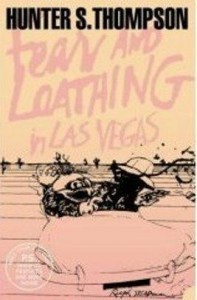 Check out this fascinating research into what happens to people when they read.
Check out this fascinating research into what happens to people when they read.
Psychologists have discovered that while reading a book or story, people are prone to subconsciously adopt their behavior, thoughts, beliefs and internal responses to that of fictional characters as if they were their own.
Experts have dubbed this subconscious phenomenon ‘experience-taking,’ where people actually change their own behaviors and thoughts to match those of a fictional character that they can identify with.
This results of this study weren’t overly surprising to me since the incredibly trippy experience I had reading On The Road as a young woman. I remember riding the bus to class in the morning, reading, and feeling quite convincingly stoned for the rest of the day, all from Kerouac’s words. Equally unsurprisingly, soon I was seeking out books like Fear and Loathing in Las Vegas for yet another cheap high.
However, the really interesting part of this for authors, is that there are trick we can use to help our readers dive into our books more completely. Apparently, by revealing character aspects later in the story, you can get more readers to identify with that character, regardless of how little they may have in common.
In an experiment consisting of 70 heterosexual males, who were asked to read a story about a homosexual undergraduate student revealed extraordinarily different results depending on when in the narrative the character’s sexuality was exposed.
Participants who had found out about the protagonist being gay later in the narrative reported significantly more favorable attitudes toward homosexuals after reading the story than participants who read that the protagonist was gay early on or read that the protagonist was heterosexual.
Identifying with your characters is, of course, a great way to develop fans of your work. More importantly, to my mind, it is a way to let people experience a new world, a new life, a new way of being. Which is, I’d argue, the point of fiction.
June 20, 2012
Fiction vs. Reality
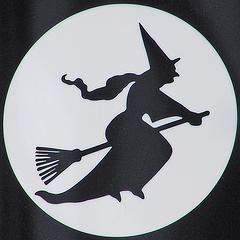
Image by Leo Reynolds
I read a very interesting article on Pankhearst about historical and modern witchcraft trials and the connection with popular fiction.
“Today, it seems very popular for writers – specifically women – to write supernatural claptrap about the magical descendants of the victims of Salem, or about witches who survived, without giving even a moment’s thought to the fact that they are, in fact, condoning the institutionalized torture and murder of – predominantly – women and, figuratively speaking, pissing all over the graces [sic] of tens of thousands of innocent women.”
Horrific events in fiction are markedly different from the same things in real life. Indeed, they are often required for the story to be interesting (murder mysteries, war stories, etc.).
This also makes me think of a dichotomy in my own community: many of us cruising sailors enjoy pirate themed events. We say “Yaar,” dress up in tricornered hats, and drink our jiggers of rum. However, we also deal with real piracy personally – I met a family who were later taken hostage in the Indian Ocean and I’m only one degree removed from the crew of Quest who were murdered after being kidnapped by pirates.
Part of the reason for this apparent conflict is that the “fun” pirates are an entirely different thing from the real ones – they are fiction. People need to be able to explore the dark side of our personalities, and fiction is a good way of doing that. If we say that some events are “off-limits” to fiction, even to fiction which treats those events as fodders for humour, then we are repressing the exploration of those ideas.
All that being said, I wonder how many people who enjoy “supernatural claptrap about the magical descendants of the victims of Salem” are aware of the history behind these stories. I’d like to think that reading stories based on real events would help spur people to learn a little about those events.
It’s an interesting question for writers and other creative artists about where (if anywhere) to draw the line.
June 13, 2012
Paperbacks available in Europe
As I’m spending my days embroiled in the wonderful world of European soccer, now is a fine time to point out to my European fans that my books are now available in paperback from Amazon’s Euro sites.
If you live in the UK, Germany, France, Italy or Spain and want a paperback, you can now get one (or more!) delivered locally. Free shipping in some places.
June 3, 2012
unCONventional Roundup
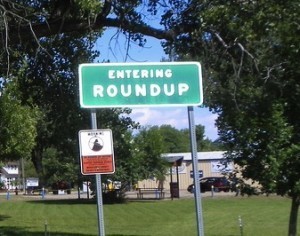
I had a fantastic couple of days at the NZ SFFH convention. I got to meet a metric truckload of great people, both writers and fans of genre fiction, and now my brain is full of story ideas. I almost wish the timing
were a little different, as I’m now heading back to North America for a whirlwind cross-countries road trip to see folks from that part of the world, and I suspect my writing time is going to be severely limited.
I hope the momentum from all the great conversations I had and people I met will carry on past my trip. I suspect I’ll be getting poked and prodded from some of my new contacts in the NZ spec fic world if it doesn’t!
May 18, 2012
140 and Counting giveaway
Do you use Goodreads? Do you like twitfic and/or short poetry? If you answered yes, you can enter to win a free copy of the ebook of 140 and Counting, a really great anthology of the above (in which I have a haiku).
This is a great antho – I say this as someone who was blown away by the galley when I read it. There are some amazing little pieces in here, so go ahead and check out the Goodreads event.
April 27, 2012
My Schedule at unCONventional
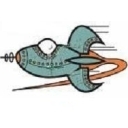 I’ll be attending unCONventional, the New Zealand SF convention, June 1-4 in Auckland.
I’ll be attending unCONventional, the New Zealand SF convention, June 1-4 in Auckland.
I’ll be pretty busy over the weekend. I’m participating in a few panels:
Overpopulation in SF (Saturday 10am)
Armageddon as Allegory (Sunday 9am)
Getting Published (Sunday 10am)
I’ll be doing a reading Sunday at 3pm, and I’ll head over to the group signing after that. I plan to have a few dead tree books for sale, and possibly some method for selling an ebook bundle as well. The complete convention schedule is here.
I also plan to be at the SpecFicNZ gathering and gnereally wandering around the con. If you’re going to be there, drop me a line at darusha@darusha.ca or just find me and say hi. I’ll probably* be the one with the blue hair.
*Probably, because it may have faded to green by then and I might not be the only one.

